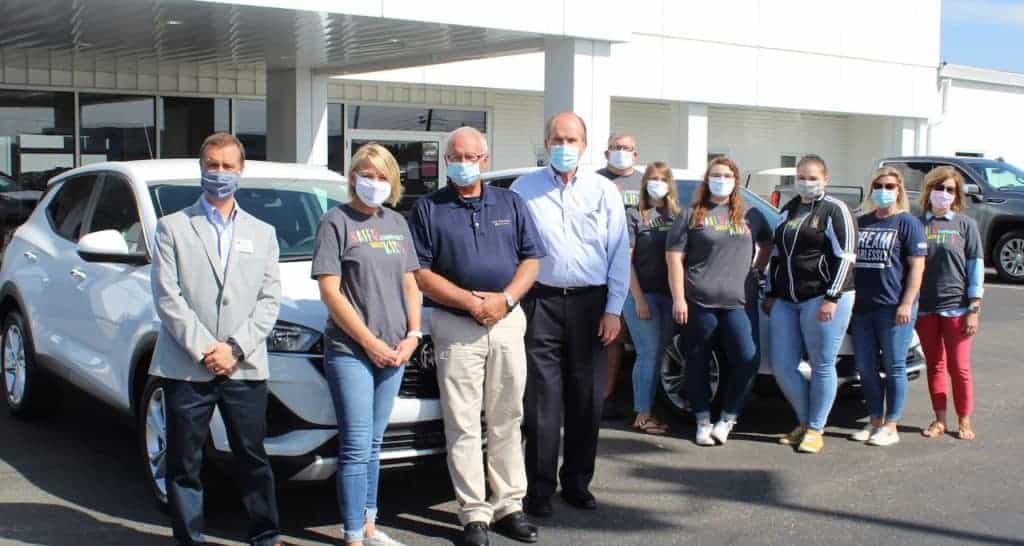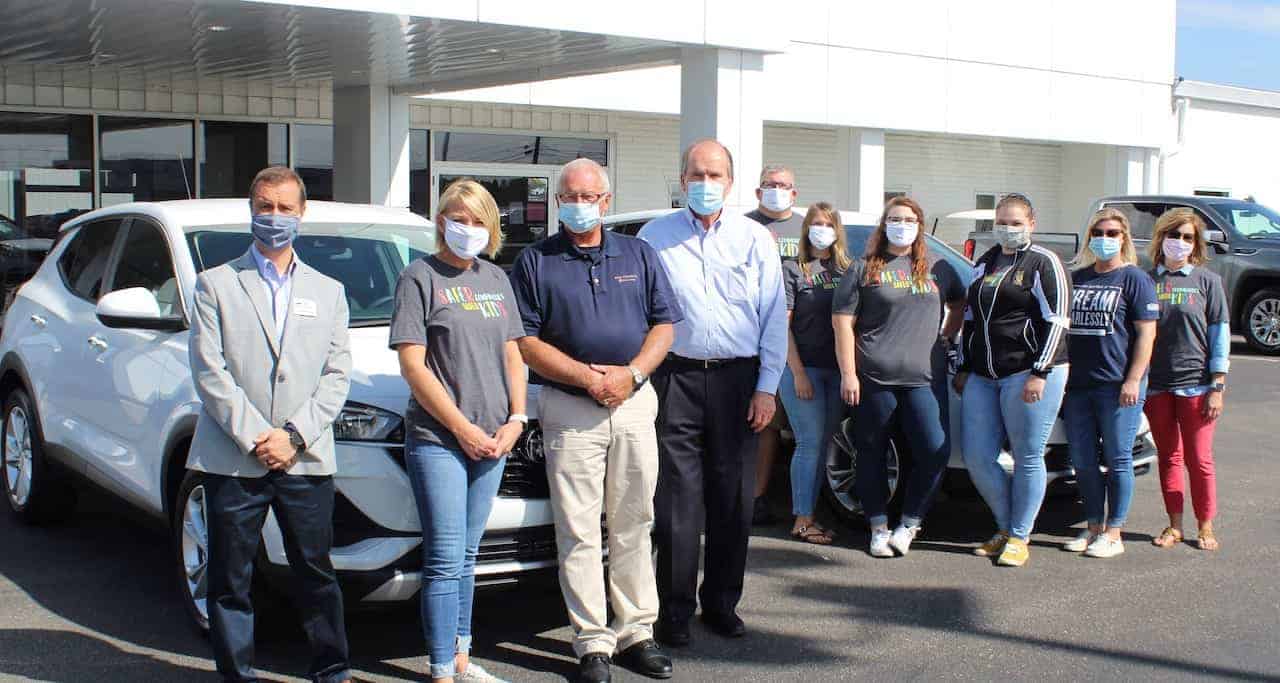Think about your commute to work. Or, if you’re working from home, think about a commute you used to have. For most Americans, a 20-30 minute commute one-way is average. Up to an hour, even in traffic-lite regions like Indiana, isn’t unheard of. But what if your commute was variable because your office moved locations every day? And what if you had to use your own car to get there? Forensic Interviewers at the Southwest Indiana Child Advocacy Center Coalition (SWICACC) have faced this challenge for years. And staff have left the job because of the cost to their vehicles.
Last week, SWICACC used funds from the USDA’s Rural Development Community Program grant, plus funds from the Community Foundations of Crawford, Perry, and Spencer Counties to purchase two new 2020 Buick Encores from Bob Luegers Buick GMC in Jasper. The USDA grant requires recipients to spend the funds on something tangible, like a car.

SWICACC’s massive rural area in southwest Indiana spans seven counties. Most child advocacy centers operate out of a single location where kids and families come to them. The Coalition flips this around. To make it easier for kids and families, the staff drive to them.
Interviews are conducted with the same rigorous standards as other CACs and are still recorded. SWICACC maintains four small go-to spaces scattered throughout their region. But interviews can and have been done anywhere that can reasonably provide privacy, neutrality, and a sense of calm for a child to disclose their story.
It’s not unreasonable or uncommon that a SWICACC interviewer based in Jasper may schedule a call to interview a child in Washington 39 minutes and 26 miles northwest. After wrapping up around lunch the interviewer might get an unplanned call by law enforcement of an urgent case and head to Troy—60 miles and an hour and a half away in the other direction.
By the end of the day, the interviewer still has to travel back home—after daylight has long gone—after work. In total, that’s hours of driving and 130 miles, a little more than the distance between Evansville to Bloomington, for just one day. Even with mileage reimbursement, most people would tire quickly of the costs to their vehicle even if they didn’t mind the time spent driving. It also puts a heavy burden on staff to have a reliable car despite modest salaries.
“This is going to save a significant amount of money,” says Tammy Lampert, Executive Director of SWICACC. “These vehicles are paid for and since we’re not continuing mileage reimbursement, we stand to save time and save staff money.” Lampert says staff retention is likely the most significant benefit. “We lost a fantastic interviewer due to the wear and tear put on their personal vehicle. Current staff have the same issue,” she says.
“We chose these two new Encores because they’re fuel-efficient, have low maintenance costs, and have service coverage for many years,” says Lampert. Encores are rated for about 28 MPG on the highway. They’re also spacious enough to accommodate the significant amount of recording hardware and equipment required of a mobile forensic interview unit.
“Traveling throughout seven counties is one of our best qualities, yet it’s also our biggest expense,” says Lampert. “The savings for many years will be put toward increasing services, staff training, outreach, and education about child abuse awareness.”

